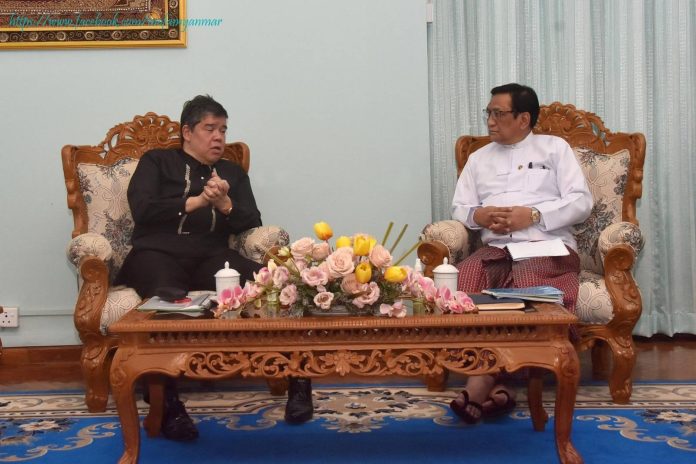FROM THE DVB NEWSROOM
The Philippines has largely deferred to other Association of Southeast Asian Nations’ (ASEAN) members, such as Indonesia, Singapore, and Malaysia, in taking stronger action against Burma’s military since its 2021 coup d’état. The Philippines’ previous government condemned the military coup and demanded the release of Aung San Suu Kyi. It also rejected Burma’s inclusion into a 15-nation free trade agreement. Philippine officials even condemned the execution of four democracy activists one year ago, including National League for Democracy (NLD) party member Phyo Zeyar Thaw and political activist Kyaw Min Yu (aka Ko Jimmy).
Following the 2022 election of President Ferdinand Marcos Jr. – the son of former Philippines President Ferdinand Marcos – Manila seems to be shifting its approach to Naypyidaw. President Marcos Jr. vowed that his administration would take a leading international role in peacekeeping efforts, including in Burma. His government has strengthened its relationship with the U.S. after the previous government opted to strengthen relations with China. The U.S. has isolated and sanctioned the military regime in Naypyidaw, while China has decided to engage with it. Last October, President Marcos Jr. vowed to propose a new approach to Burma’s crisis at the next ASEAN summit. At the previous summit, he echoed the Philippines’ support for ASEAN Chair Indonesia’s current diplomatic efforts at resolving it.
A delegation led by Eduardo Jose A. De Vega, the Philippines’ Acting Undersecretary for Migrant Workers’ Affairs, met with Kyaw Myo Htut, the regime’s Deputy Minister of Foreign Affairs, on June 30 in Naypyidaw. Regime media reported that the two discussed enhancing bilateral relations, strengthening regional collaboration, and combating cybercrime and human trafficking. Eight Filipinos were rescued from Burma in February. They were trafficked into the country from Thailand and forced to work for cyber scam companies.
Last month, the Philippines sent a representative to Pattaya, Thailand to participate in the Thai caretaker government’s meeting with Burma’s military regime. Thailand and Laos were the only two ASEAN members with their foreign ministers reported in attendance. Singapore, Malaysia, and Indonesia did not send any representative to Pattaya. As these three ASEAN members remain steadfast in efforts to isolate Burma’s military regime, the Philippines has shown signs of a potential changing stance towards Naypyidaw. Manila’s evolving policies stands in contrast to U.S. efforts to deny any legitimacy to the military. President Marcos Jr.’s seemingly new approach to Burma raises questions about his government’s commitment to assist its allies’ efforts to isolate the military rather than engage with it.



